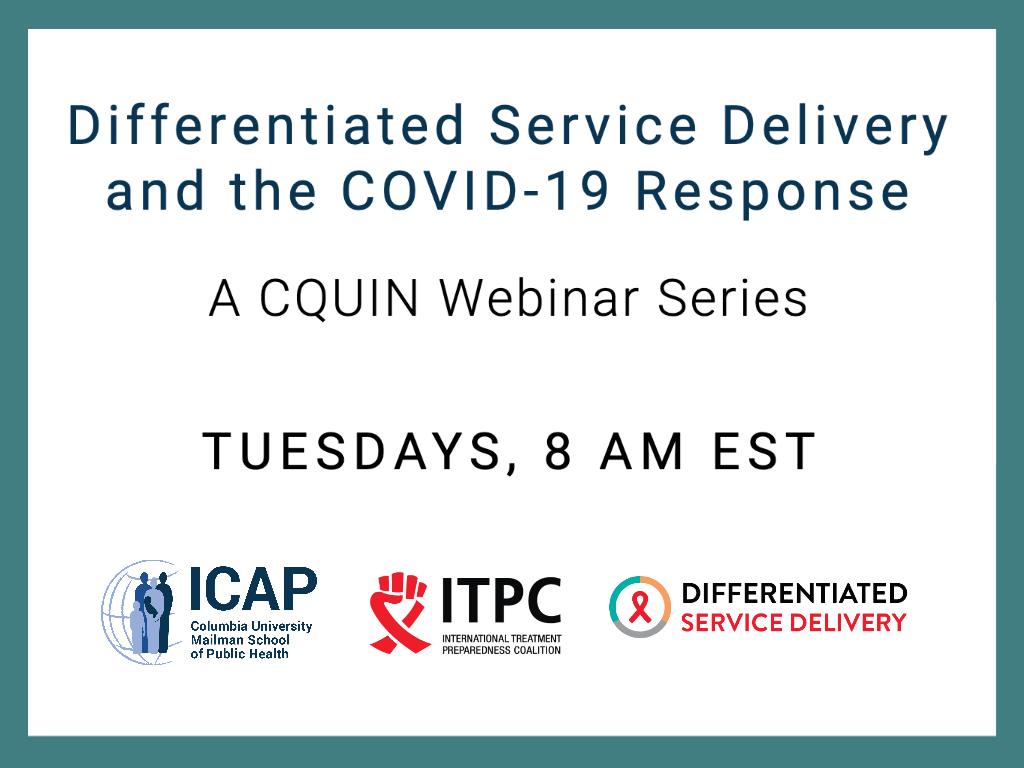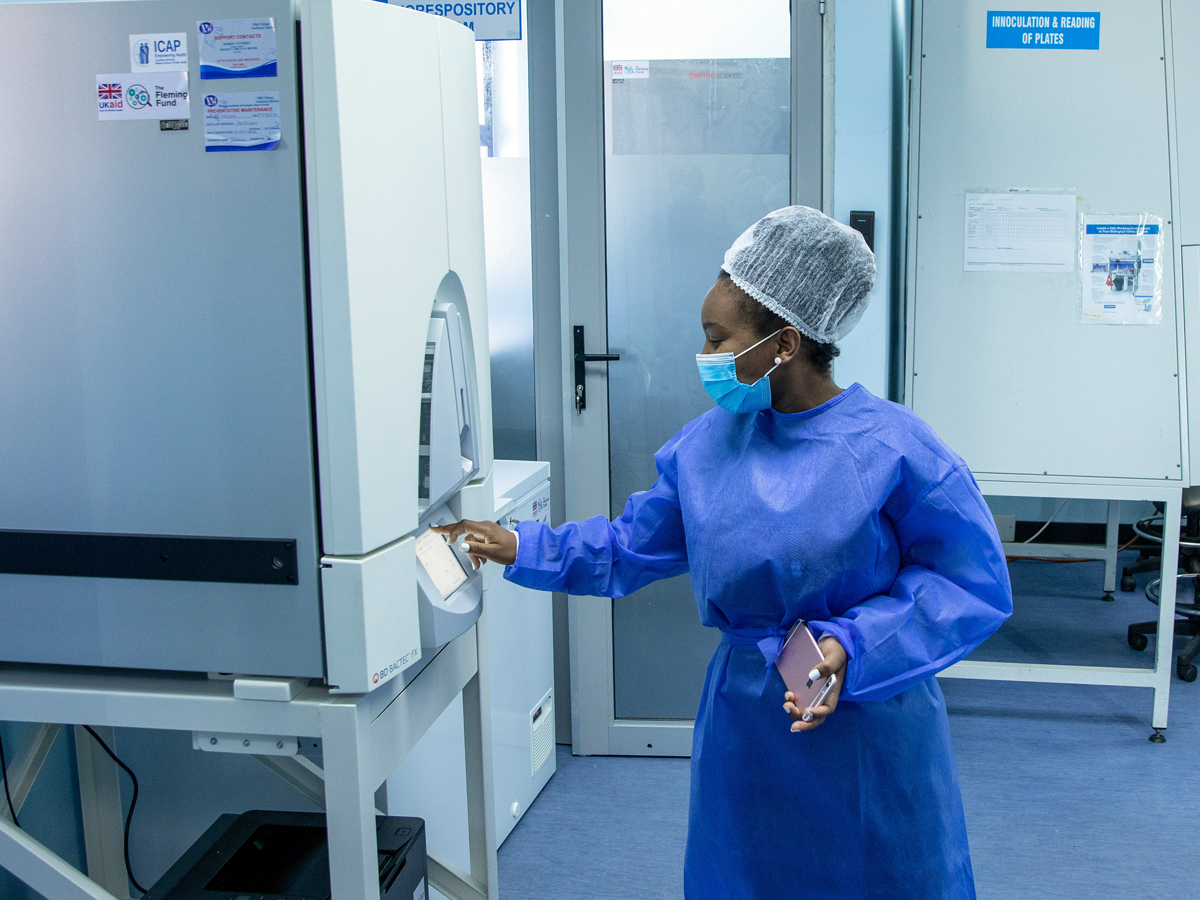The CQUIN webinar series on Differentiated Service Delivery (DSD) and the COVID-19 response will take a hiatus in July, given the multiple other activities occurring that month, including the 23rd International AIDS Conference hosted by the International AIDS Society (IAS) from July 6 -10, 2020.
ICAP’s CQUIN learning network launched the webinar series on March 31 in collaboration with the IAS Differentiated Service Delivery initiative and the International Treatment Preparedness Coalition (ITPC), as one of the learning network’s virtual platforms for fostering a demand-driven exchange of questions, policies, guidance, resources, and lessons learned in response to the coronavirus pandemic in CQUIN network countries.
In 13 weeks, the DSD COVID-19 webinar has become one of the most engaging resources for the learning network and its partners, with active participation by Ministries of Health, national networks of people living with HIV, implementing partners, donors, and global agencies such as WHO and UNAIDS. Other resources launched by the network include a CQUIN-COVID WhatsApp group and a dedicated webpage of resources shared by members of the learning network.
“Many countries have had to rapidly adapt their national health and DSD policies in response to the COVID-19 pandemic,” said Miriam Rabkin, MD, MPH, CQUIN’s principal investigator. “These webinars have given participants a platform to share their experiences, learn from case studies, and find solutions to common challenges.”
The webinar series will resume later in August or September of 2020.
To access CQUIN’s COVID-19 resources and for more information on the DSD and COVID-19 webinar series please visit: https://cquin.icap.columbia.edu/network-focus-areas/covid-19/
A global health leader since 2003, ICAP was founded at Columbia University with one overarching goal: to improve the health of families and communities. Together with its partners—ministries of health, large multilaterals, health care providers, and patients—ICAP strives for a world where health is available to all. To date, ICAP has addressed major public health challenges and the needs of local health systems through 6,000 sites across more than 30 countries.








